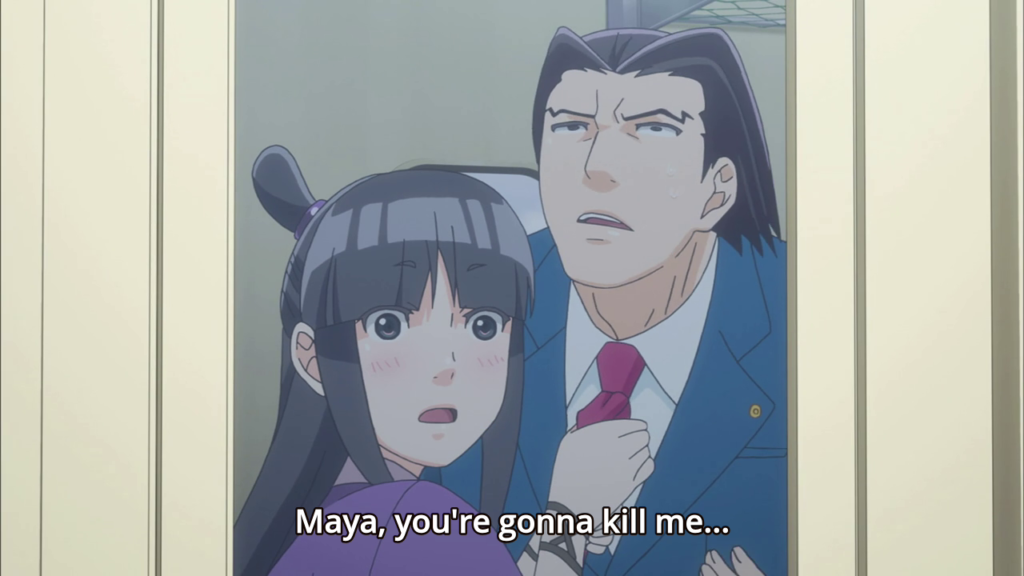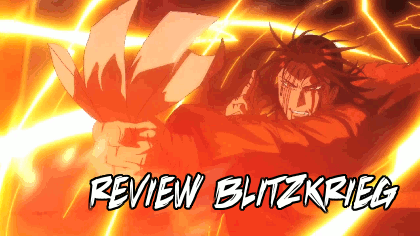Welp, it’s the dawn of a new season and I’m WAY behind on my backlog. It’s a sickening feeling, so let’s clear the slate and get through all the anime I’ve been watching and meaning to get to in one quick shot. Ladies and gentlemen, I present unto you… the Anime Review Blitzkrieg.
UQ Holder!
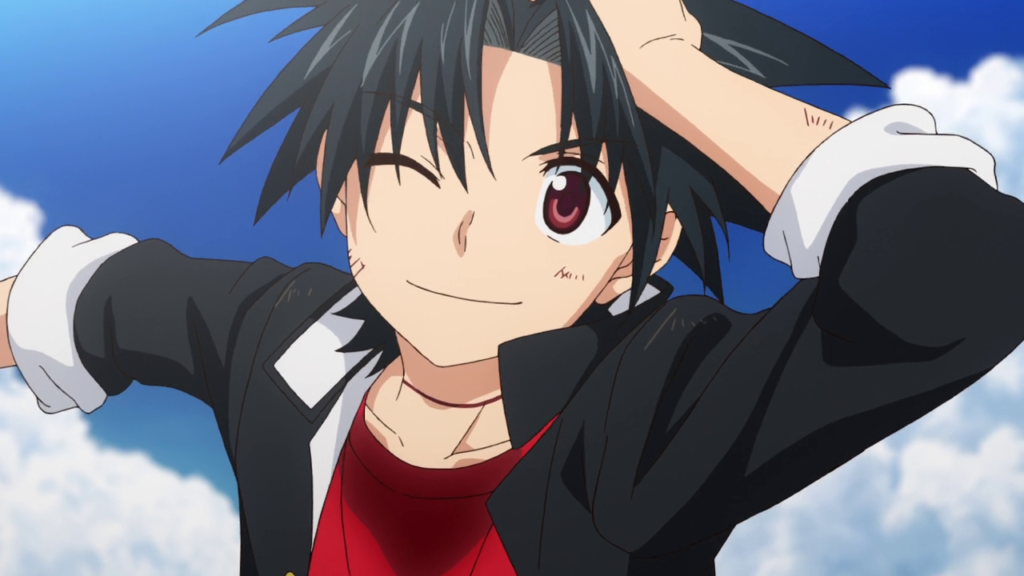
In the sequel to the Negima! manga, and decidedly not any of its anime adaptations, we follow Negi’s grandson Tota on a journey that explores what it means to be an immortal following a legacy.
Oh me, oh my. I looked forward to this, and… I’m just so horribly disappointed. I absolutely adore UQ Holder. Heck, I may just enjoy it more than I did Negima! If nothing else, I feel it’s stronger for having a more compact cast and a romance comedy side that actually goes somewhere… but I digress.
The anime… had promise. The first two episodes are practically perfect. They wonderfully set the tone of the series and firmly establish that this is a sequel set in the distant future. It’s a perfect introduction to the world of UQ Holder. As an adaptation of the manga, it falls apart shortly afterward. As its own product, that doesn’t happen until a couple more episodes in when it clumsily tries to work its way through its first serious arc. Then the series completely collapses about halfway through when you start to realize that the show runners are more interested in making connections to Negima than telling a cohesive story.
In a word, it’s rushed. And there’s absolutely no reason for it to be rushed. The series is more than capable enough to stand on its own, but it is never given the opportunity. It’s not even that it doesn’t follow the manga completely; I’m all for making changes (and actually prefer it) so long as what you’re sacrificing is replaced by something that is either better or is at least more appropriate for the anime medium. Every single sacrifice made in this adaptation is done in the name of rushing through the series and establishing the Negima mythos, even if the cost is UQ Holder mythos. It’s an especially mind-boggling decision considering Negima never even got a proper anime adaptation, especially on TV. WHO the hell was the intended audience for this?
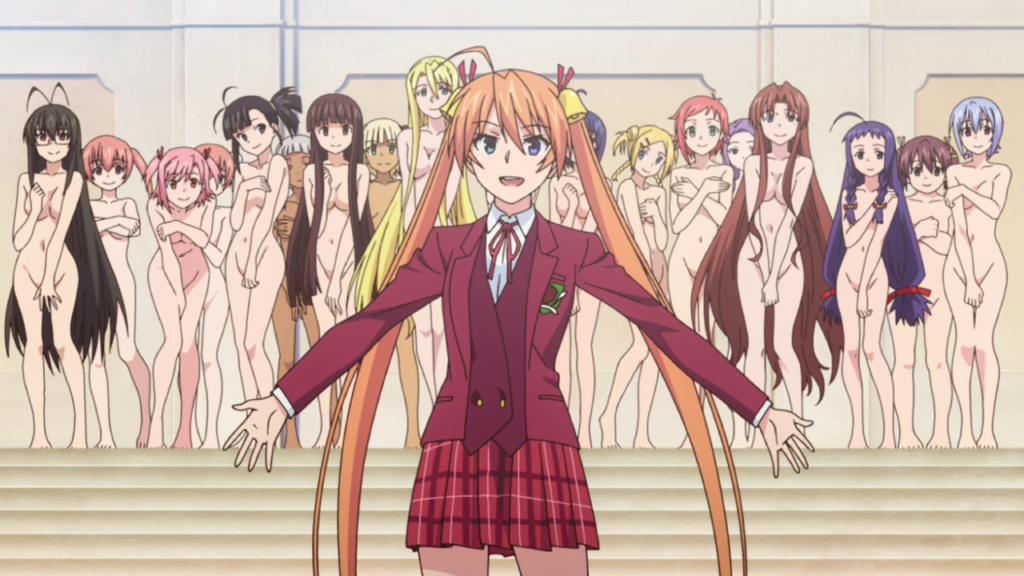
By far, the most frustrating sacrifice of all was the loss of Santa Sasaki, one of my favorite members of the main group. Losing Santa doesn’t mean all that much in the grand scheme, but with him we’re losing an amazing arc, a member of the cast that isn’t added to Tota’s harem, and a subtle connection to the nature of the big bad.
Additionally, they really did Kirie wrong. The final episode has one of my favorite Kirie moments, and it’s just utterly ruined by the fact that they skipped the entire time freeze arc and everything that goes with it, meaning it’s not quite as impactful as the manga version.
As for the good… well, I’m not gonna lie. The choice of using Happy Material as the OP was brilliant, and the UQ Holder version is even catchier than the original.
Visually, UQ Holder is outstanding. It’s just a shame that we couldn’t get a longer, more respectable run considering what we got a taste of.
Overlord II
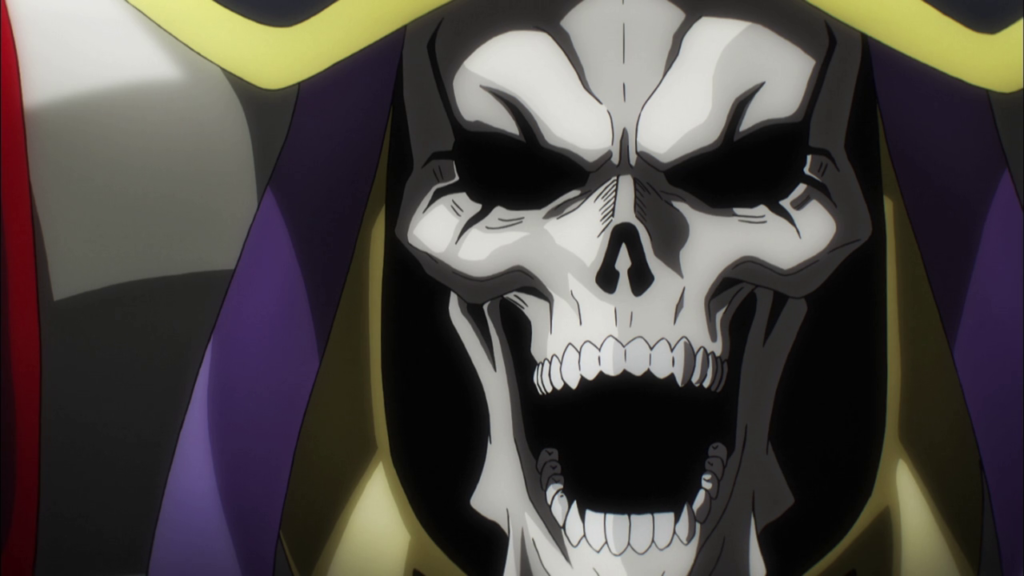
In the continuation of Overlord, we continue to follow Ainz Ooal Gown in his conquest of the new world following the fallout of his fight with Shalltear.
Overlord returns in a bit of an awkward place. We’re suddenly infodumped on the goings-on of the world. It’s a bit jarring suddenly seeing things from the point of view of the inhabitants rather than the occupants of Nazarick.
Roughly the first half of the season is dedicated to the Lizardmen arc. It’s an interesting excursion that seems more than a little out of place – no doubt due to the fact that the Lizardmen are clearly portrayed as protagonists, yet, their foe is Nazarick, meaning they don’t stand a chance. Worse off, it seems as if all of their sacrifice is just Nazarick toying with their lives for their own satisfaction.
On the upside, I welcome the introduction of unexpected lizard waifu.
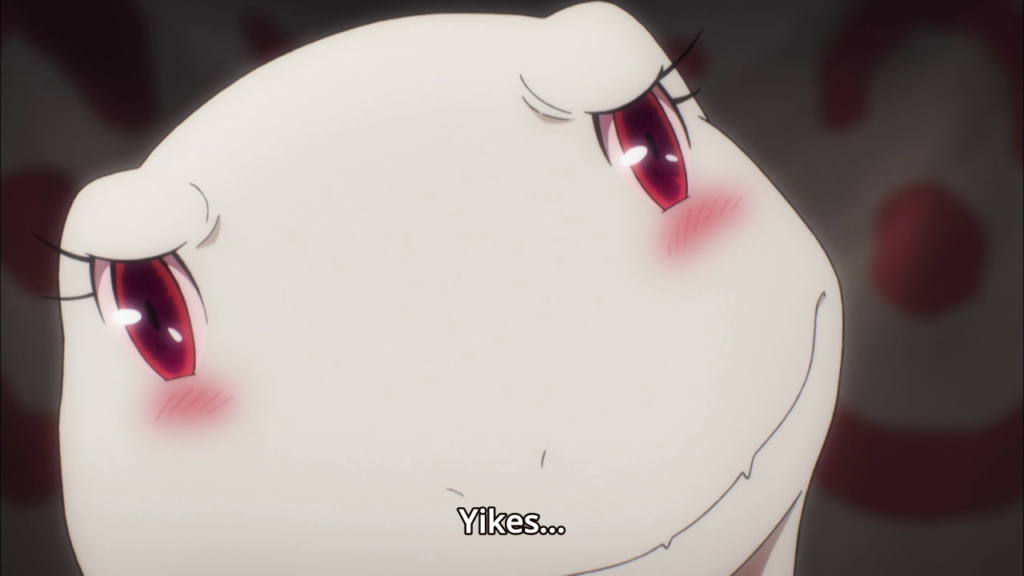
The second half revolves around a crime organization known as the Eight Fingers. Aside from dealing with humans instead of Lizardmen, it seems to have the same flavor as the Lizardmen arc: a whole lot of setup, focus on the non-Nazarick factions, not much of a payoff, and more than one episode where you’re wondering “where is this leading to?” Even when Nazarick does get more directly involved later on in each arc, the sheer pointlessness of each battle took me out of it.
The closest thing to a compelling overarching mystery is who is the third party that controlled Shalltear. After minor teasing throughout the entire season… it’s never really resolved.
With the exception of the Sebas-focused episodes, Overlord is wrought with a lack of any real conflict or tension.
Record of Grancrest War (Eps. 1-13)
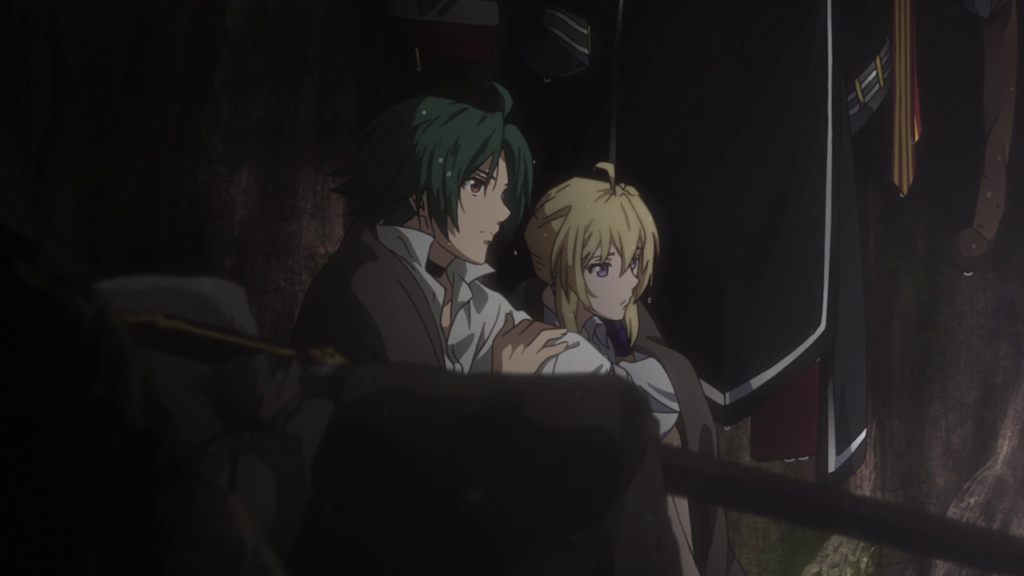
Siluca is a mage looking for a worthy master. Theo is a wandering Lord on a mission to become powerful enough to defend his home country. Together, they push each other to achieve more than they could imagine.
I recently read the Record of Lodoss War light novel and was ready for more Ryo Mizuno goodness. I’m talking classic D&D replay fantasy. That’s… not what I got here. Right off the gate, we’re introduced to the “Crest” system and mage contracts, and the scene quickly turns into a Fire Emblem tutorial.
The series sets the world decently enough with a wedding. The long struggle against the Chaos promises to end soon with the joining of two major families and the forging of the Emperor’s Crest, the Grancrest – the completion of which would render all Crests in the world useless, but at last bring an everlasting peace. But the wedding is crashed when a demon kills the heads of the two households, throwing the world into yet another free-for-all with Lords vying for power by battling each other for territory and rank.
Even having not read the source material, the TV series feels rushed, as if to cover as much ground as possible. Theo’s turn as a Lord advances in a flash and is over before it has a chance to settle properly. An arc that could easily fill an entire cour is over in a matter of four episodes. It seems the show runners determined to go with a “one mission per episode” approach early on, and it almost makes me wish I were playing this rather than watching it.
Something I found refreshing was the budding romance between the two main characters. It’s something that builds over time and isn’t defined by dramatic moments or escalation, nor is it in any way hampered by harem rivals or violent feelings of denial. It’s just a connection that makes sense and eventually clicks.
As previously mentioned, the fourth episode is a bit of a turning point, but only because of a sudden shift in status quo. The real turning point of the series seems to be episode 9, when shit gets real and one of the major players of the war shows they are willing to do whatever it takes for their brand of unification.
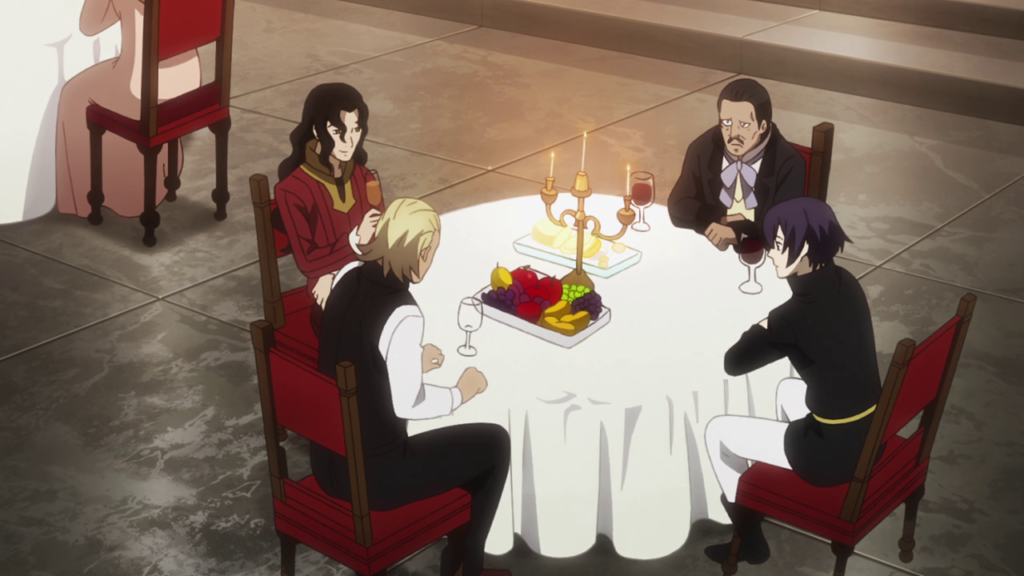
Compared to Record of Lodoss War, has a higher fantasy level but also isn’t afraid to get just as gritty. It’s less tabletop RPG and more tactical RPG. Where Lodoss used an act of war as window dressing for the heroes’ main quest, Grandcrest’s focus is the war, and the heroes’ main quest has to find its role in it.
Heroes of war have less of an aura of invulnerability, yet they’re far more likely to receive mortal wounds (Grancrest has a shockingly high named character death count).
There are long stretches of time where the focus is removed from Theo and Siluca, and it can be extremely frustrating. Probably the main source of that frustration is a combination of how much focus is spent on them in the beginning and how fast the pace is compared to how little focus they get later and how much the pace slows down. But like the war, this is a long game, and with the extended diversion, the promise of a satisfying payoff is presented.
The second cour promises to focus more on Theo and his main goal of liberating his home, and so far it’s proving considerably more intriguing than the first cour.
Dragon Ball Super
It happened.
Cardcaptor Sakura: Clear Card
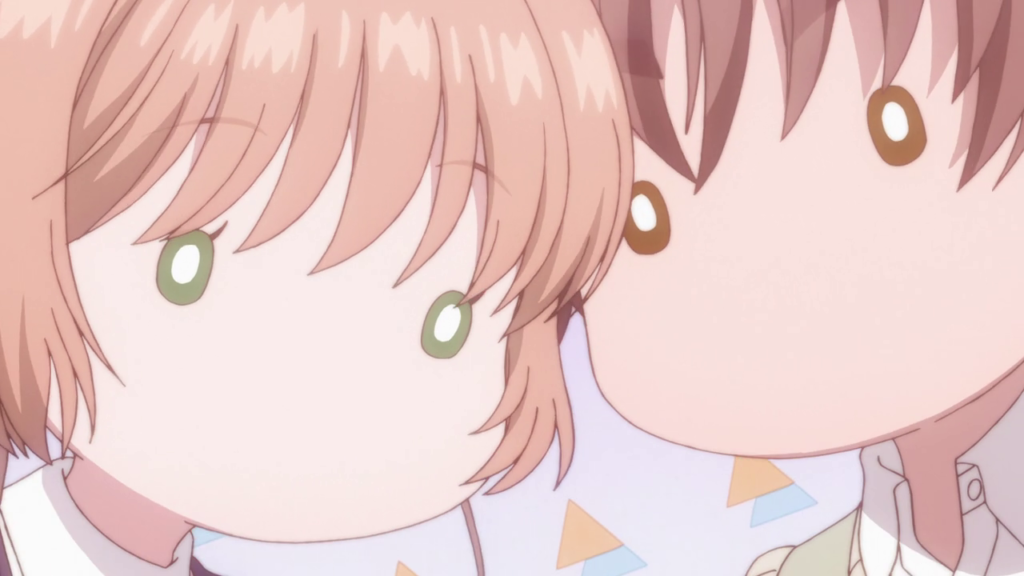
Sakura returns and starts a new school life, but further changes come in the form of her Clow Cards disappearing – transformed into blank cards after a mysterious dream.
Well… if you wanted more of the same from Cardcaptor Sakura, I’ve got good news for you! It’s pretty much the old series all over again!
Okay, there’s a few differences. There’s a lot less tension overall since there isn’t an active rivalry with Syaoran or Meiling anymore. There’s still the overarching mystery of the clear cards’ purpose, but not much else. Heck, Syaoran’s reappearance in Sakura’s life makes for a short, sweet, nostalgic moment… followed by a whole lotta nothing.
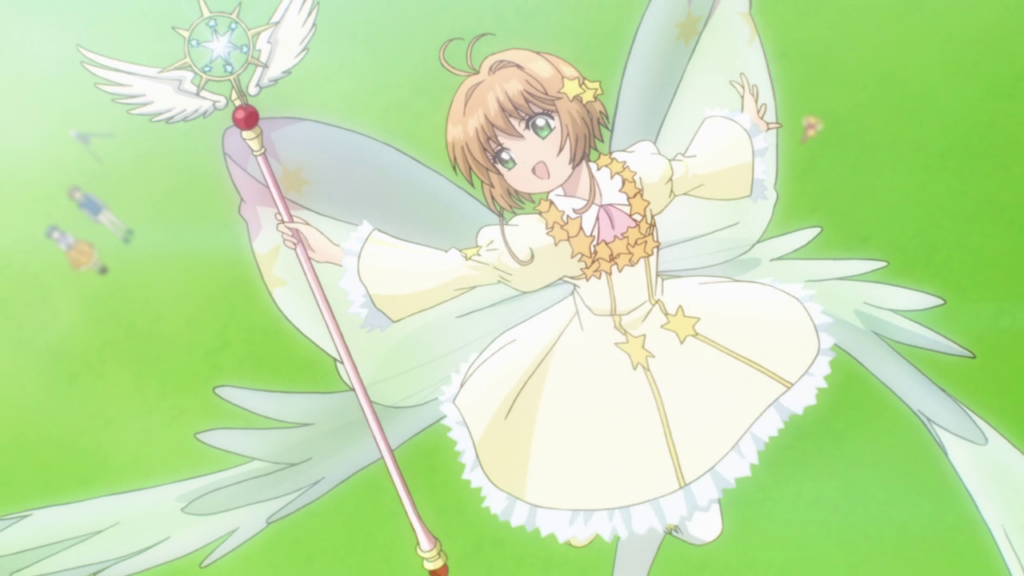
So yeah, it’s definitely more CCS, but there isn’t much substance to it. And that’s okay. Just… don’t expect anything amazing. It’s fairly impressive enough that it managed to completely nail the whole reboot thing.
Ace Attorney (Second Half)
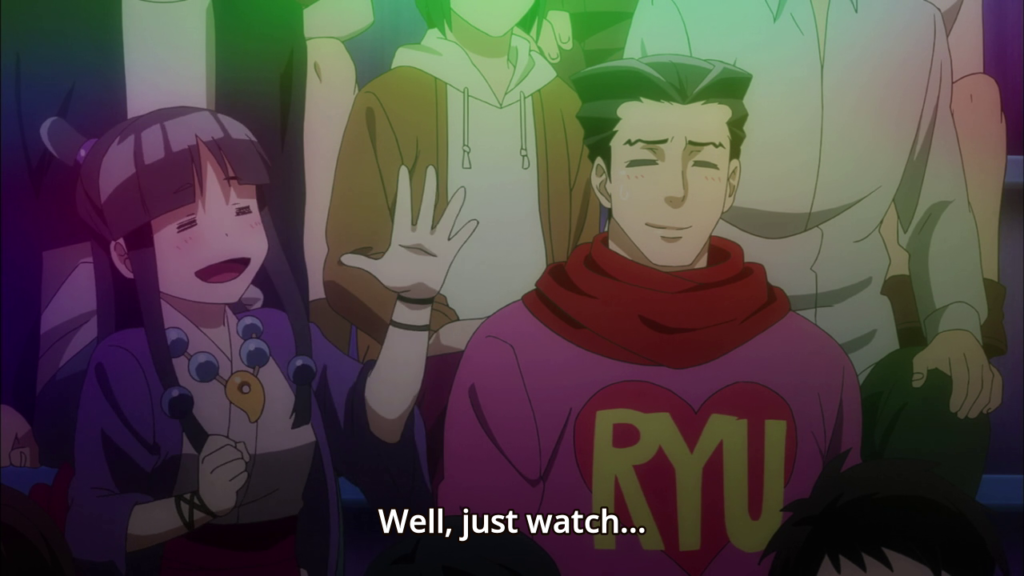
Phoenix Wright continues his mission to defend his assortment of zany clients from the most unlikely of scenarios.
Wow, it’s a bit hard to believe, but the Justice For All coverage is much, MUCH better than the Ace Attorney coverage. Strangely enough, outside of the flashback episode, the anime version of Turnabout Big Top may just be THE reason to watch the adaptation.
I’ve talked about how streamlined the cases are before, and the practice really shines in this half. For all the minor things that get cut out, the anime makes up for by going even more over the top. My favorite instance has got to be the Berry Big Circus performers putting on a circus act in the middle of a trial just to provide a visualization for how the murder occurred.
Unfortunately, it seems that whatever they learned about adaptation improvement for Turnabout Big Top was swiftly forgotten for Farewell, My Turnabout. One of the best cases in the franchise was treated like absolute shit. Half of Adrian Andrews’ characterization was missing, and the anime utterly wastes the four episodes given to this case by NOT showing off the lengths Phoenix goes to extend every court session by even a minute just to save Maya.
There really isn’t much else to talk about. The story from the games is covered without any meaningful alterations, but it feels less clunky as a whole, original tracks compliment remade game tracks well, and I appreciate the nutcases at A-1 that clearly ship Phoenix and Maya.
